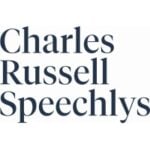-
Which factors bring an individual within the scope of tax on income and capital gains?
Liability to UK income tax and UK capital gains tax primarily depends on an individual’s tax residence, asset location, and income source.
UK resident individuals pay income tax on their worldwide income and capital gains tax on capital gains realised on disposals of their worldwide assets. Relief from double taxation may be available via a relevant double tax treaty or unilateral measures.
From 6 April 2025, under the new qualifying new resident regime (the “QNR regime”), individuals who become UK resident after at least ten consecutive tax years of non-UK residence may claim 100% relief from UK tax on certain foreign income and gains for their first four tax years of UK residence, regardless of whether those amounts are remitted to the UK. This regime is also referred to as the foreign income and gains (“FIG”) regime, as the relief principally applies to foreign income and gains. Note a UK tax year runs from 6 April in one year to 5 April the following year.
Until 6 April 2025, UK residents who were not UK domiciled or deemed UK domiciled could use the remittance basis to shield non-UK income and gains from UK tax unless those funds were brought to the UK. This regime ended on 6 April 2025, but previously protected non-UK income and gains remain exempt unless remitted to the UK.
As a transitional measure, the UK government introduced the Temporary Repatriation Facility (“TRF”). The TRF gives people who used the remittance basis a limited time to bring foreign income and gains realised before 6 April 2025 into the UK and pay less tax on them – 12% for the tax years ending 5 April 2026 and 2027, and 15% for the year ending 5 April 2028.
A non-UK resident is typically liable only for income tax on UK source income and capital gains tax on gains from disposals of UK real property (whether held directly or indirectly) or assets used in a UK trade.
A person who returns to the UK may have to pay income tax and capital gains tax on certain income and gains made while they were living abroad, due to the temporary non-residence rules. An individual is considered temporarily non-UK resident if, after a defined period as a UK resident, they become non-UK resident for five years or fewer before becoming a UK resident again. Since the five-year period refers to calendar years, the rules may apply to absences of fewer than six full tax years.
Residence is assessed each tax year, based mainly on the number of midnights spent in the UK during the tax year. The number of midnights an individual can spend in the UK without becoming tax resident often depends on the number of specific ties they have to the UK.
UK tax residence is determined under the Statutory Residence Test (the “SRT”). The SRT applies different criteria depending on whether someone has been UK resident in any of the previous three tax years. Certain automatic tests may establish an individual’s UK tax residence status, such as defined numbers of midnights spent in the UK, whether their only or main home is in the UK, or if they work full-time in the UK or abroad. If these automatic tests are inconclusive, specific connections to the UK are taken into account, including: (i) having a UK resident spouse, civil partner, or minor child; (ii) available accommodation in the UK; (iii) working more than three hours in the UK on at least 40 days within the tax year; (iv) spending more than 90 midnights in the UK in one or both of the two preceding tax years; and (v) spending more nights in the UK during the tax year than in any other country.
-
What are the taxes and rates of tax to which an individual is subject in respect of income and capital gains and, in relation to those taxes, when does the tax year start and end, and when must tax returns be submitted and tax paid?
Income tax is typically charged on an individual’s total income for each tax year, after deducting any allowable deductions.
For the tax year ending 5 April 2026, the first £12,570 of income is typically tax-free. Income from £12,571 to £50,270 is taxed at 20% (dividends at 8.75%), £50,271 to £125,140 at 40% (dividends at 33.75%), and above £125,140 at 45% (dividends at 39.35%). Dividends are taxed as the highest portion of income. This applies to English taxpayers. Scotland and Wales have devolved powers to set their own taxation rates.
The standard personal allowance for the tax year ending 5 April 2026 is £12,570, reduced by £1 for every £2 of adjusted net income over £100,000. Only UK residents and certain non-UK residents qualify for this allowance.
An individual can receive up to £500 in dividends tax-free in the tax year ending 5 April 2026; however, these dividends count as taxable income and use up the relevant income tax band.
From 6 April 2026, the basic dividend tax rate will rise to 10.75% and the higher rate to 35.75%. The notional basic rate tax credit for non-UK residents will be removed, so UK and non-UK residents will be taxed equally on UK dividends.
Individuals with employment or self-employment income are also required to pay national insurance contributions on their earnings. For the tax year ending 5 April 2026, employees pay national insurance at a rate of 0% on income up to £12,570, 8% on income between £12,570 and £50,270, and 2% on any amount exceeding £50,270. Different rates apply to self-employed individuals.
Capital gains tax applies to an individual’s total chargeable gains for the tax year, minus allowable losses and the annual exempt amount.
Capital gains tax is chargeable on capital gains realised on the disposal of most assets, with possible exemptions, such as an individual’s residence and specific chattels, and reliefs, such as holdover relief (which defers capital gains tax until a later disposal). “Disposal” encompasses sales and gifts.
Chargeable gains are determined by subtracting the costs of acquiring, improving, or disposing of the asset from the amount received or deemed to be received for its disposal. It may be possible to deduct losses incurred in a tax year, or unused losses from previous years, from that year’s gains to calculate an individual’s chargeable gains.
For the tax year ending on 5 April 2026, an individual is entitled to an annual exempt amount of £3,000.
After calculating an individual’s total chargeable gains for the tax year and subtracting any allowable losses and the annual exempt amount, the remaining sum is subject to capital gains tax.
Most chargeable gains are taxed at 18% or 24%, based on an individual’s total income and chargeable gains for the tax year.
Until 5 April 2026, carried interest will be charged to capital gains tax at 32%. From 6 April 2026, carried interest will be treated as trading profits and subject to income tax and national insurance contributions, in principle, at an overall top rate of 47%. A 72.5% multiplier should apply to “qualifying” carried interest to reduce the effective rate to approximately 34.1%. Subject to the terms of any double tax treaty, carried interest received by a non-UK resident will be in scope of charge if the carry relates to duties performed in the UK. This may be limited in respect of a non-UK resident’s qualifying carried interest if the individual has fewer than 60 UK workdays in a tax year (days where the individual performs more than three hours of investment management services in the UK).
Typically, an individual is UK resident or non-UK resident for the entire tax year. In certain circumstances, it is possible to split the tax year into periods of residence and non-residence, such that income and capital gains generated during the period of non-residence are not subject to UK taxation.
If required, an individual must file a tax return and pay any tax due by 31 January after the end of the relevant tax year. Additionally, UK residents who dispose of UK residential property must file a tax return and pay any capital gains tax due within 60 days of the disposal. Non-UK residents are subject to the same rule extended to cover all UK real estate disposals and disposals of shares in entities which most of their value from UK property.
From 6 April 2026, certain self-employed individuals and landlords will need to sign up for Making Tax Digital to upload details of their income and expenses, provide quarterly updates to HMRC, and submit their tax return and pay any tax due by the relevant 31 January deadline. Initially, only those with annual self-employment or property income of over £50,000 will be within scope. The threshold will lower to £30,000 from 6 April 2027 and £20,000 from 6 April 2028.
-
Does your jurisdiction provide advantageous tax regimes for individuals directly investing in or holding certain types of assets from an income tax or capital gains tax perspective?
Several reliefs are available to encourage individuals to invest in specific assets, including the Venture Capital Trust (“VCT”) scheme, the Enterprise Investment Scheme (“EIS”), the Seed Enterprise Investment Scheme (“SEIS”), Business Asset Disposal Relief (“BADR”), and Investors’ Relief.
The VCT scheme provides income tax and capital gains tax incentives to individuals investing in companies that are not listed on a recognised stock exchange (although, from 6 April 2026, the income tax relief rate will decrease from 30% to 20%). The EIS also offers income tax and capital gains tax reliefs for those buying shares in smaller, higher-risk trading companies. The SEIS grants income tax and capital gains tax benefits to investors in companies trading for fewer than three years.
BADR allows business owners to pay a lower rate of capital gains tax when disposing of all or part of their business. For disposals before 6 April 2026, the tax rate is 14%, rising to 18% for disposals from that date.
Investors’ relief may apply to gains realised on a disposal of shares in an unlisted company. The relief operates to reduce the rate of capital gains tax to 14%, although this will also increase to 18% from 6 April 2026.
-
Are withholding taxes relevant to individuals and, if so, how, in what circumstances and at what rates do they apply?
Employers typically deduct income tax and national insurance contributions from employees’ pay.
Rent paid to non-UK resident landlords is usually subject to a 20% withholding tax unless the landlord applies to HM Revenue and Customs (“HMRC”) to use the “Non-Resident Landlord Scheme”.
Income tax is also generally deducted from royalties and interest payments made to non-UK residents.
-
How does the jurisdiction approach the elimination of double taxation for individuals who would otherwise be taxed in the jurisdiction and in another jurisdiction?
The UK aims to minimise double taxation through double tax treaties or unilateral relief. Its treaties must be interpreted considering the UK’s adoption of the OECD’s Multilateral Instrument (“MLI”), which prevents misuse of treaties for tax advantages.
-
Is there a wealth tax and, if so, which factors bring an individual within the scope of that tax, at what rate or rates is it charged, and when must tax returns be submitted and tax paid?
There is currently no general wealth tax in the UK.
-
Is tax charged on death or on gifts by individuals and, if so, which factors cause the tax to apply, when must a tax return be submitted, and at what rate, by whom and when must the tax be paid?
Inheritance tax applies to lifetime gifts and transfers upon death. Broadly, it is charged on a transfer that reduces the value of an individual’s estate (a “transfer of value”). On death, a person is considered to have made a transfer of value of their entire estate immediately before death.
In general, an individual’s estate comprises: (i) all property to which the individual is beneficially entitled; (ii) assets that have been disposed of but from which the individual retains the ability to benefit; and (iii) in some cases, trust property in which the individual holds a life interest.
An individual’s worldwide estate is within scope of inheritance tax if they have been UK resident for at least 10 of the previous 20 tax years (called a “long-term resident”). If a long-term resident leaves the UK, their worldwide estate will remain in scope of inheritance tax for a specified period of time based on the length of their previous UK residence.
The estates of individuals who are not long-term residents are generally outside the scope of inheritance tax unless their assets are situated in the UK or derive their value (directly or indirectly) from UK residential property or, from 6 April 2026, UK agricultural property (including, in both cases, certain loans associated with such property).
Most lifetime gifts made at least seven years before death are outside the scope of inheritance tax, provided the donor does not retain the ability to benefit from the gifted property. Lifetime transfers into trust (except bare trusts or certain favoured trusts) or to closely held companies trigger an immediate 20% inheritance tax charge on amounts above the nil rate band (as defined in paragraph 7.6 below), with additional inheritance tax becoming payable if the donor dies within seven years.
On death, the first £325,000 of an individual’s estate (the “nil rate band”) is subject to inheritance tax at 0%, with the remainder taxed at 40%. Gifts made in the seven years before death will reduce the available nil rate band. An estate also may benefit from the “residence nil rate band” (currently £175,000) if certain conditions are met in respect of a gift of an individual’s home on their death to their children or other direct descendants. If unused on the death of the first spouse, both nil rate bands may be available to the estate of the surviving spouse.
Inheritance tax is usually payable within six months of death. An individual’s personal representatives are primarily liable to pay the inheritance tax unless it arises on a lifetime gift made within seven years of the donor’s death – in which case, the recipient is primarily liable for the tax.
Lifetime gifts are disposals for capital gains tax purposes and are generally treated as made at market value. When someone dies, their assets receive a capital gains tax-free uplift to their market value at that time, with beneficiaries inheriting them at this new base cost.
-
Are tax reliefs available on gifts (either during the donor’s lifetime or on death) to a spouse, civil partner, or to any other relation, or of particular kinds of assets (eg business or agricultural assets), and how do any such reliefs apply?
Transfers between spouses and civil partners, whether made during lifetime or upon death, are typically exempt from inheritance tax. Where assets are transferred from a spouse or civil partner who is a long-term resident to one who is not, the exemption is generally capped at an amount equivalent to the nil rate band (currently £325,000).
For capital gains tax, gifts between spouses or civil partners living together are not deemed to be made at market value. Instead, the recipient spouse or civil partner takes on the donor’s original base cost, so no chargeable gain arises on the gift.
Lifetime gifts are generally exempt from inheritance tax up to a total of £3,000 each tax year. Any unused portion of this annual exemption may be carried forward to the following tax year. Gifts not exceeding £250 per recipient are also exempt from inheritance tax, provided the recipient has not already received gifts using the £3,000 exemption. Additionally, regular lifetime gifts made from an individual’s surplus income are exempt if they form part of normal expenditure and do not reduce the individual’s standard of living.
Certain agricultural property (including farmhouses, cottages and farm buildings as well as farmland) and business property (including unquoted shares in a trading company) may currently qualify for full inheritance tax relief, subject to certain conditions. From 6 April 2026, 100% relief will apply only to the first £2.5 million of such property, with 50% relief for any value above that. The £2.5 million allowance may be transferred between spouses or civil partners.
-
Do the tax laws encourage gifts (either during the donor’s lifetime or on death) to a charity, public foundation or similar entity, and how do the relevant tax rules apply?
Most gifts made by an individual – either during lifetime or on death – to a recognised UK charity (broadly, those under the jurisdiction of the High Court in England, Wales, or Northern Ireland, or the Court of Session in Scotland) are exempt from inheritance tax. If a person leaves at least 10% of the value of their chargeable estate to such a charity, the remainder is taxed at a reduced inheritance tax rate of 36%.
For lifetime gifts since 26 November 2025 and for transfers on death from 6 April 2026, the exemption from inheritance tax on gifts to charity applies only to gifts to charities recognised as such under UK tax law (meeting certain jurisdictional, management and registration requirements). The exemption will not apply to gifts to charitable trusts which do not meet the UK tax law definition, even if the trust is established exclusively for charitable purposes under the laws of the relevant UK jurisdiction.
Individuals may also receive income tax and/or capital gains tax relief on lifetime gifts to recognised UK charities.
-
How is real property situated in the jurisdiction taxed, in particular where it is owned by an individual who has no connection with the jurisdiction other than ownership of property there?
Long-term residents are subject to inheritance tax on their worldwide real property.
Individuals who are not long-term residents are subject to inheritance tax on: (i) directly held UK real property; and (ii) non-UK assets which directly or indirectly represent the value of UK residential property or, from 6 April 2026, UK agricultural property (including certain loans related to UK residential or agricultural property).
Rental income from UK real property is subject to income tax (whether the recipient is UK or non-UK resident).
An individual (UK or non-UK resident) who realises a chargeable gain on the disposal of UK property is subject to capital gains tax. Relief from capital gains tax on gains realised on a disposal of residential property may be available if the property has been the owner’s only or main home (the availability of this relief is limited for non-UK residents). A non-UK resident may also be subject to capital gains tax on gains realised on a disposal of shares in a “property rich” company (ie a company deriving at least 75% of its value from UK real property) (gains on shares disposed of by a non-UK resident otherwise generally being outside the scope of capital gains tax).
Companies which own UK residential property with a value of more than £500,000 are subject to the annual tax on enveloped dwellings (“ATED“) subject to the availability of any reliefs.
Purchasers of UK real property typically pay stamp duty land tax (“SDLT”) at rates up to 12% for residential and 5% for commercial or mixed-use properties, based on value. An SDLT return must usually be submitted within 14 days of the “effective date” of the property transaction (typically, the date of completion).
A 5% SDLT surcharge may apply if the purchase of a UK residential property results in the buyer owning more than one residential property (in the UK or otherwise).
Non-UK resident purchasers of UK residential property are also subject to a 2% SDLT surcharge. As a result, a non-UK resident purchaser of UK residential property can pay SDLT at a rate of up to 19% if they already own another residential property.
The SDLT test for UK residence differs from the SRT. The test here is based on a simpler day count with no ‘tax year’ concept, treating individuals as non-UK resident if present in the UK for fewer than 183 days in any continuous 365-day period commencing 364 days before and ending 365 days after the transaction’s effective date.
UK local authorities levy council tax on residential properties based mainly on their assumed capital value. Most non-domestic properties are subject to business rates, based on their open market rental value.
-
Does your jurisdiction have any specific rules in relation to the taxation of digital assets?
Digital assets are capable of being personal property and forming part of an individual’s estate. HMRC does not consider cryptoassets to be currency or money, treating them as traditional assets for tax purposes. As such, capital gains from selling cryptoassets may be subject to capital gains tax, and cryptoassets received for services or mining may be subject to income tax.
HMRC currently take the view that the location of a cryptoasset for capital gains tax and inheritance tax is determined by the location of an underlying asset if the cryptoasset is a digital representation of such asset. If there is no underlying asset, HMRC determine the location of a cryptoasset according to the tax residence of its beneficial owner.
-
Are taxes other than those described above imposed on individuals and, if so, how do they apply?
Purchasers of UK registered shares may have to pay stamp duty or stamp duty reserve tax (“SDRT”) (typically at 0.5% of the purchase price). Since 27 November 2025, relief from the 0.5% SDRT charge is available on purchases of securities or depositary interests in companies in their first three years of listing on a UK regulated market (such as the London Stock Exchange Main Market).
-
Does your jurisdiction provide advantageous special tax regimes for individuals from a wealth tax, inheritance/estate tax or gift tax perspective?
As noted at question 6, there is no wealth tax in the UK. Strictly speaking, there is also no gift tax in the UK, although gifts may be taxed in certain circumstances as set out in this chapter.
As set out in question 7, in addition to the small inheritance tax exemptions mentioned, most lifetime gifts generally fall out of scope of inheritance tax if the donor survives for a period of seven years from the date of the gifts. There is no cap on the amount which can be gifted in this way.
-
What steps might an individual be advised to consider before establishing residence in (or becoming otherwise connected for tax purposes with) the jurisdiction?
An individual should take advice and consider carrying out preparatory steps before the tax year in which they first become UK resident.
The individual should review their worldwide assets, including shareholdings and life insurance policies, and the terms and previous income and capital gains of any existing trusts or foundations. Consideration should be given to whether the QNR regime may be available and, if so, how best to make use of it. The individual may also wish to look at rebasing assets, receiving earlier payments of dividends and winding up structures.
The individual should review their directorships and trusteeships to assess whether becoming UK resident will impact the taxation of existing structures. Similarly, directorships and employments should be considered in the context of the UK tax treatment of remuneration, including any securities held by the individual in connection with any directorship/employment.
The individual to consider succession and estate planning, including putting in place a tax-efficient Will, particularly if they acquire UK situated assets (such as a home) or intend to stay in the UK on a long-term basis.
-
Once an individual has left (and is no longer connected for tax purposes with) the jurisdiction, does the jurisdiction charge any form of exit tax or retain taxing rights over the individual's directly held assets or structures which they created or have an interest in?
In contrast to trust and corporate migrations, the UK generally does not impose an exit tax on individuals who become non-residents. However, certain UK tax reliefs may be lost or restricted. In addition, long-term residents remain liable for UK inheritance tax on their worldwide estate for a period after departure (commonly referred to as a “tail”): 3 tax years if an individual was UK resident between 10 and 13 tax years plus an additional tax year for each tax year an individual was UK resident for over 13 tax years up to a maximum of 10 tax years if an individual was UK resident for at least 20 tax years.
Non-UK residents (even if not long-term residents) will continue to carry an exposure to UK tax in certain circumstances as set out in questions 1 and 7. Inheritance tax may also arise on gifts of non-UK assets made by an individual in the seven-year period prior to their death if the individual was a long-term resident at the time of the gift (even if they are not a long-term resident at the time of death).
Non-UK assets in non-UK trusts are outside the scope of inheritance tax if the settlor is not a long-term resident at the time of any charge. If a settlor loses long-term resident status, an “exit charge” for inheritance tax applies as assets move out of scope. The exit charge is calculated under the “relevant property regime” (an inheritance tax regime specific to trusts, which imposes a maximum 6% inheritance tax charge on relevant trust property every 10 years and on distributions). If a settlor dies as a long-term resident, the status of the trust is then frozen and will remain within the relevant property regime going forward.
-
What are the main rules of succession, and what are the scope and effect of any rules of forced heirship? Do any forced heirship rules apply automatically, or is it necessary for heirs to bring claims to enforce their rights?
Under the laws of England and Wales, succession to immoveable property (typically, real property) is governed by the laws of the country in which the property is situated and succession to moveable property is governed by the law of the deceased’s domicile.
The laws of England and Wales state that everyone has one domicile at any time. An individual usually takes their domicile from that of their father at the time of the individual’s birth (“domicile of origin”). After age 16, the individual can adopt a new domicile (“domicile of choice”) by living in another country with the intention to stay permanently. If they no longer live there permanently, the individual’s domicile may revert to their domicile of origin, unless they acquire another domicile of choice.
If someone dies without a valid Will covering their entire estate, and English succession rules apply, any property not automatically passing to a surviving joint owner will be distributed according to intestacy rules.
English law generally allows testamentary freedom, although statutory rules allow certain individuals to bring a claim for financial provision if not adequately provided for under a Will or intestacy. Such claims can only be made if the deceased was domiciled in England and Wales at the time of their death.
Under the EU Succession Regulation, British nationals may elect for English law (or another applicable UK system of law), to govern succession to their estate if they wish to override the succession rules of any relevant EU Member State.
-
Is there a special regime for matrimonial property or the property of a civil partnership, and how does that regime affect succession?
There is no special regime for handling the property of married couples or civil partners.
If someone dies without a valid Will, the surviving spouse or civil partner will receive provision from the deceased’s estate according to the intestacy rules.
A spouse or civil partner may claim reasonable financial provision from their deceased spouse or civil partner’s estate if the deceased died domiciled in England and Wales, as explained in question 16.
In divorce or dissolution cases, the English court has broad power to divide property between spouses or civil partners. For cohabiting couples who separate, the individuals have no rights against each other under matrimonial law, but may under trust law.
Although not legally binding, the English court will consider and may give weight to a nuptial agreement in financial proceedings if the parties entered into the agreement freely and with full understanding, unless it would be unfair to uphold the terms of the agreement in light of the prevailing circumstances.
-
What factors cause the succession law of the jurisdiction to apply on the death of an individual?
As noted in question 16, under English law, succession to immovable property is governed by the laws of the jurisdiction in which the property is located, whilst succession to moveable property is governed by the laws of the deceased’s last domicile.
The above position is subject to the private international laws of any jurisdiction to which English law refers the succession and the application of the EU Succession Regulation (where relevant).
-
How does the jurisdiction deal with conflict between its succession laws and those of another jurisdiction with which the deceased was connected or in which the deceased owned property?
When English succession laws conflict with those of another country, English courts typically apply total renvoi, following both the domestic and private international laws of the relevant foreign country with the aim of resolving cases as that country’s courts would.
Although the UK did not adopt the EU Succession Regulation, it may still be relevant if the deceased had ties to both the UK and an EU Member State which did adopt that Regulation.
-
In what circumstances should an individual make a Will, what are the consequences of dying without having made a Will, and what are the formal requirements for making a Will?
Adults with assets in England or Wales – especially real estate – or whose estates are governed by English succession law, are advised to create a Will. This ensures their estate is distributed according to their wishes and tax-efficiently. Practically, it can be beneficial for an individual with assets in different jurisdictions to have an English law Will for UK property and/or other assets that pass according to English succession law. Doing so may allow UK probate to proceed simultaneously with the administration of a deceased’s non-UK estate (noting that caution should be taken to prevent a Will in one jurisdiction inadvertently revoking another).
If someone dies without a valid Will covering their entire estate and English law applies, their assets are distributed according to the statutory intestacy rules.
When property is co-owned, it may transfer directly to the surviving owner(s) upon death, regardless of any Will or intestacy rules. This depends on how the ownership is structured.
Who inherits under intestacy depends on which relatives are alive. For example, if both a spouse and children survive and the estate exceeds £322,000, the spouse receives outright the deceased’s personal belongings, a legacy of £322,000, interest on that sum from the date of death until payment, and half of any remaining balance outright. The children receive the other half.
Typically, a Will must be written and signed by the person making it (the testator) in front of two witnesses, who must also sign in the testator’s presence.
A Will may still be valid under English law even if it doesn’t meet these criteria, provided the Will is executed in accordance with the laws of the jurisdiction in which: (i) it was executed; (ii) the testator was domiciled or habitually resident at the time of execution or death; (iii) the testator was a national at either time; or (iv) any immoveable property is situated if the Will disposes of such property.
A Will may be revoked by creating a new one (including in another jurisdiction), by marriage/entering into a civil partnership, or by destroying the Will.
-
How is the estate of a deceased individual administered and who is responsible for collecting in assets, paying debts, and distributing to beneficiaries?
A deceased’s personal representatives are responsible for administering the estate. Personal representatives are either the executors named in a Will or administrators appointed under the intestacy rules.
Their duties include gathering the estate’s assets, settling all debts and liabilities (including inheritance and other taxes), and distributing the remaining assets according to the deceased’s Will or the rules of intestacy (as applicable).
-
Do the laws of your jurisdiction allow individuals to create trusts, private foundations, family companies, family partnerships or similar structures to hold, administer and regulate succession to private family wealth and, if so, which structures are most commonly or advantageously used?
Individuals may use trusts, partnerships, and/or companies to manage and hold family wealth, with trusts being commonly used for this purpose. It is not currently possible to create a private foundation under English law.
Transferring assets into a trust during one’s lifetime can offer greater certainty over how the assets are managed and distributed. Trusts can also provide more flexibility, privacy, and asset protection compared to personal ownership.
Setting up a trust can lead to significant UK tax liabilities, so it is important to take advice and consider other options, such as family partnerships or family investment companies.
-
How are these structures constituted and what are the main rules that govern them?
A family investment company is incorporated like any other UK company, including the adoption of constitutional documents and creating a share structure which fits the needs of the family.
A trust is established when an individual (the “settlor”) transfers assets to custodians (the “trustees”, which may include the settlor) to hold and administer for the benefit of specified persons (the “beneficiaries”).
There are various types of trusts, such as life interest trusts, which give a beneficiary the right to receive income from the trust, and discretionary trusts, where trustees decide if and when beneficiaries get any income or capital. When trustees only hold legal ownership and the beneficiary has full rights to the assets, the trust is called a bare trust or nominee arrangement.
Under English law, trusts do not need to be documented in writing. Having a trust deed is recommended to set out the trust terms and the powers and duties of the trustee(s) (particularly where they differ from powers and duties given by statute). The maximum trust period permitted under English law is 125 years. Trusts are not incorporated and do not have their own legal personality. Most UK resident trusts and some non-UK resident trusts with connections to the UK must register with and disclose trust information to HMRC.
-
What are the registration requirements for these structures and what information needs to be made available to the relevant authorities? To what extent is that information publicly available?
Companies incorporated under English law must disclose certain information including their name, registered address, date of incorporation, nature of business, directors’ details, details of their owners and persons with significant control (“PSCs”), certain resolutions, constitutional documents, and accounts. Directors are required to file this information with Companies House, and most information is then publicly available. Directors and PSCs must also verify their identity with Companies House.
If a non-UK entity owns a registered interest in land located in England or Wales (either a freehold or a lease for more than seven years), it must register with Companies House on the Register of Overseas Entities (the “ROE”) and supply information about its beneficial owners. This requirement does not apply if the interest was acquired before 1 January 1999. Most information on the ROE is publicly available. For non-UK entities holding land in Scotland and Northern Ireland, similar rules are in place, though the specific requirements vary.
Similar to a UK company, an English Limited Liability Partnership (“LLP”) is required to disclose specific information and documents, and LLP members and PSCs must verify their identity. These rules do not apply to English general partnerships.
As mentioned in question 23, in most cases, a UK resident trust must be registered, and details of the trust and its beneficial owners must be provided to HMRC via the Trust Registration Service (the “TRS”). Non-UK resident trusts may also need to be registered and reported under the TRS if they have UK tax obligations, acquire UK real estate, or enter a business relationship with a UK service provider (in the latter case, if there is a UK resident trustee). Trust information and documents are generally not accessible to the public, unless the trust is charitable or, in most cases, an individual demonstrates a legitimate interest in obtaining the information (usually for anti-money laundering purposes).
Entities (including trusts for these purposes) that satisfy certain definitions of financial institutions for the purposes of UK regulations implementing the US Foreign Account Tax Compliance Act (“FATCA”) and the OECD’s Common Reporting Standard (“CRS”) must also, separately, register with HMRC and, as necessary, report/provide information required for FATCA and CRS purposes.
-
How are such structures and their settlors, founders, trustees, directors and beneficiaries treated for tax purposes?
Trustees are treated as a single body for UK tax purposes. As such, they are subject to UK tax depending on their collective residence status as well as the location and source of trust assets and income. The UK tax treatment of a settlor or beneficiary is determined by their residence together with the residence of the trustees.
For tax purposes, property in a bare trust is treated as owned by the beneficiary/ies and is not subject to the following rules.
Generally, a trust with a long-term resident settlor (or a deceased settlor who was long-term resident at the time of their death) will be subject to inheritance tax charges on every 10-year anniversary of the trust and when capital assets are distributed to beneficiaries under the relevant property regime (as referred to in question 15). Certain life interest trusts do not fall within this regime – instead, the trust fund is included as part of the estate of the beneficiary entitled to the life interest and subject to inheritance tax on their death.
Relevant property charges will not generally arise to a trust holding non-UK assets if the settlor is not a long-term resident, except that non-UK assets which derive value from UK residential property or, from 6 April 2026, UK agricultural property is generally treated in the same way as UK assets.
Inheritance tax may also be charged on the value of a trust’s assets if the settlor is or may be able to benefit from the trust, and the settlor is a long-term resident or the trust holds UK assets or non-UK assets deriving their value from UK residential or agricultural property as above.
The income tax and capital gains tax treatment of a trust depends on the residence of the trustee body.
If a UK-resident settlor, their spouse, or civil partner may benefit from a trust, the settlor is typically subject to income tax on the trust income. This may also be the case where a settlor’s minor child can benefit from a trust.
UK resident trustees are generally subject to income and capital gains taxes on trust income and gains respectively, often at higher rates than individuals. The precise income tax treatment will vary according to the trust type. Rules exist to prevent double taxation when the settlor is also taxed on trust income. A UK beneficiary in receipt of an income distribution may receive should receive a tax credit for income tax already paid by trustees. Capital distributions to beneficiaries may trigger a capital gains tax charge for the trustees.
Non-UK resident trustees are subject to income tax on UK source income and capital gains tax on the disposal of UK real property (whether held directly or indirectly) or UK assets used in a UK trade. Non-UK source income and capital gains of the trust and any underlying entities may be attributed to and taxed on a UK resident settlor or, if in receipt of a benefit from the trust, UK resident beneficiaries.
Partnerships are generally treated as transparent for UK tax purposes. Typically, the partners are taxed on the partnership’s profits in proportion to their partnership shares.
A family investment company incorporated or centrally managed and controlled in the UK is generally subject to corporation tax at a rate of up to 25% on its worldwide profits.
Like an employee, company directors and individuals with significant influence over such directors (known as “shadow directors”) are usually subject to income tax on any remuneration or other benefits received from the company.
-
Are foreign trusts, private foundations, etc recognised?
English law recognises trusts and private foundations established under non-English law.
-
How are such foreign structures and their settlors, founders, trustees, directors and beneficiaries treated for tax purposes?
Typically, the law that governs a trust does not affect the UK tax treatment of the settlor, trustees, or beneficiaries, and the rules outlined in question 25 will apply.
If a structure does not exist under English law (such as a foundation), HMRC will look to characterise and therefore tax it in line with the rules applicable to the English law structure it most closely resembles (for example, a trust or a company).
-
To what extent can trusts, private foundations, etc be used to shelter assets from the creditors of a settlor or beneficiary of the structure?
Where a beneficiary has a fixed income entitlement under a trust, an English court may order that income payments be directed to a creditor of the beneficiary.
In the case of a discretionary trust (where a beneficiary has no right to the trust assets or income), an English court will not tend to order payment of trust funds to a beneficiary’s creditor.
English courts have power to set aside the transfer of assets into trust if the transfer was made with the intention of defeating the claim of a potential creditor.
The assets of a trust may be regarded by an English court as a financial resource and considered in determining an individual’s liability to make payments in divorce or child maintenance proceedings, where the individual is a beneficiary or a potential beneficiary of the trust. It may also make an order against the trustees in financial provision proceedings.
-
What provision can be made to hold and manage assets for minor children and grandchildren?
The age of majority in the UK is 18 years, although trusts and Wills often delay entitlement to assets and/or income until a later age (such as 25 years).
Property given to person under 18 is usually held on bare trust, with the trustees having powers to manage, invest, and use the trust assets or income for the child’s benefit until they reach majority.
It can be tax-efficient for grandparents to set up bare trusts for grandchildren (the same is not the case for parents). If a grandparent makes a gift on bare trust for a grandchild, no inheritance tax will be payable if the grandparent survives the gift by seven years. Income and capital gains arising to the trustees are treated as the child’s for UK tax purposes, so may fall within their personal allowance and annual exempt amount. However, when the child turns 18, they are entitled to call for the assets.
-
Are individuals advised to create documents or take other steps in view of their possible mental incapacity and, if so, what are the main features of the advisable arrangements?
Under English law, an individual (the “donor”) may create a Lasting Power of Attorney (“LPA”), granting authority to one or more individuals (“attorneys”) to manage the donor’s property and finances or make decisions regarding their health and welfare if the donor loses mental capacity.
If multiple attorneys are appointed, the LPA can specify whether the attorneys must act jointly or are permitted to act independently, allowing any attorney to make decisions. The donor may also include binding instructions or non-binding preferences in an LPA. Attorneys come under the supervision of the Office of the Public Guardian.
If an individual loses mental capacity and does not have an LPA, an application will need to be made to the Court of Protection to appoint a “deputy” (a similar role to that of an attorney appointed under an LPA). It is generally preferable to make an LPA rather than apply for a deputyship, as this allows the donor to choose their representative, decide certain matters in advance and the process is generally simpler, quicker and cheaper.
An English law LPA is of limited relevance to a donor who does not live in England or Wales, or whose assets are situated outside England.
-
What forms of charitable trust, charitable company, or philanthropic foundation are commonly established by individuals, and how is this done?
English charities may be established as charitable trusts, where the trustees manage and administer the trust assets for exclusively charitable purposes (as set out under English law). Charitable trusts are particularly suitable for simple charities, such as grant-making charities, those which do not pursue charitable activities, and/or do not have employees or own land.
Another and at present generally the most common form of English charity is a charitable incorporated organisation (“CIO”). A CIO is similar to a charitable company but has lighter compliance obligations and is regulated solely by the Charity Commission for England and Wales.
An English charity can also be set up as a charitable company limited by guarantee. Charitable companies may be less attractive as they are regulated by both the Charity Commission for England and Wales and Companies House. However, in contrast to a CIO, a charitable company can be established very quickly and is a widely recognised legal entity internationally.
However structured, an English charity must be established only for English law charitable purposes and for the public benefit, although it may operate anywhere in the world. The statutory charitable purposes include the relief of poverty, and the advancement of education, religion, health, and the arts.
The Charity Commission for England and Wales is responsible for the regulation of charities in England and Wales. All CIOs regardless of their annual income and most other English charities with a gross annual income of at least £5,000 must be registered with and send annual filings to the Charity Commission. The Charity Commission maintains a public register of charities including the names of a charity’s trustees, its charitable purposes, and copies of its filed accounts.
-
What is the jurisdiction's approach to information sharing with other jurisdictions?
The UK strongly supports tackling tax evasion and money-laundering. It is committed to exchanging information with other jurisdictions and has enacted and updated various pieces of legislation for this purpose, including regulations implementing FATCA, the CRS and the TRS.
The UK also introduced regulations to implement the OECD Mandatory Disclosure Rules (“MDR”). The MDR require an intermediary to disclose details of arrangements which involve the use of opaque offshore structures or are intended to circumvent the CRS where the intermediary is UK resident, incorporated in the UK, has its place of management in the UK or provides relevant services through a UK branch or office.
-
What important legislative changes do you anticipate so far as they affect your advice to private clients?
Legislation is being enacted for many of the changes referred to in this chapter as taking effect from 6 April 2026. The chapter is prepared on the basis that such changes will be made as contemplated. There is a possibility that this may not be the case, such that some changes may come into effect on a different basis than expected, may be delayed or may not be enacted at all.
From 6 April 2027, certain pensions and death benefits will be subject to inheritance tax on the death of a pension member. In effect, the value of the pension and/or death benefits will be included as part of the deceased member’s estate when calculating inheritance tax due on their death.
New income tax rates will apply to property and savings income from 6 April 2027. Property income will be charged at a rate 2% higher than the general income tax rates, ie 22% for basic rate property income, 42% for higher rate property income and 47% for additional rate property income. Income tax rates on savings income will similarly rise by two percentage points.
Also in 2027, it is expected that stamp duty and SDRT will be abolished and replaced by a single securities transfer charge (the “STC”), with the STC to be reported and paid via a new online portal.
A high value council tax surcharge (dubbed the “mansion tax”) will be introduced from April 2028 to impose an annual charge on properties worth at least £2 million. There will be four bands starting at £2,500 per year for properties valued between £2 million and £2.5 million, rising to a maximum of £7,500 per year for properties valued at more than £5 million.
Similar to the reporting of financial accounts under the CRS, the UK (together with several other jurisdictions) has committed to the automatic exchange of information on immovable property. The aim is to implement a framework for this by 2030.
Recommendations have been published to modernise the law governing Wills (which dates back nearly 200 years), including enabling a person to make an electronic Will, abolishing the rule which revokes a person’s Will on marriage/entering into a civil partnership and enabling the courts to uphold a Will even if it does not meet the execution requirements. The recommendations were published in 2025. It is unclear if and to what extent (if any) they will be implemented.
Changes are also expected to the way in which LPAs may be created and registered. The changes will include the ability for a donor to make a digital LPA, the introduction of certain identity verification requirements and the introduction of greater safeguards in notifying persons of, or objecting to, the registration of an LPA. Whilst the Powers of Attorney Act 2023 has legislated for these changes in principle, further legislation is required in order for the changes to take effect.
United Kingdom: Private Client
This country-specific Q&A provides an overview of Private Client laws and regulations applicable in United Kingdom.
-
Which factors bring an individual within the scope of tax on income and capital gains?
-
What are the taxes and rates of tax to which an individual is subject in respect of income and capital gains and, in relation to those taxes, when does the tax year start and end, and when must tax returns be submitted and tax paid?
-
Does your jurisdiction provide advantageous tax regimes for individuals directly investing in or holding certain types of assets from an income tax or capital gains tax perspective?
-
Are withholding taxes relevant to individuals and, if so, how, in what circumstances and at what rates do they apply?
-
How does the jurisdiction approach the elimination of double taxation for individuals who would otherwise be taxed in the jurisdiction and in another jurisdiction?
-
Is there a wealth tax and, if so, which factors bring an individual within the scope of that tax, at what rate or rates is it charged, and when must tax returns be submitted and tax paid?
-
Is tax charged on death or on gifts by individuals and, if so, which factors cause the tax to apply, when must a tax return be submitted, and at what rate, by whom and when must the tax be paid?
-
Are tax reliefs available on gifts (either during the donor’s lifetime or on death) to a spouse, civil partner, or to any other relation, or of particular kinds of assets (eg business or agricultural assets), and how do any such reliefs apply?
-
Do the tax laws encourage gifts (either during the donor’s lifetime or on death) to a charity, public foundation or similar entity, and how do the relevant tax rules apply?
-
How is real property situated in the jurisdiction taxed, in particular where it is owned by an individual who has no connection with the jurisdiction other than ownership of property there?
-
Does your jurisdiction have any specific rules in relation to the taxation of digital assets?
-
Are taxes other than those described above imposed on individuals and, if so, how do they apply?
-
Does your jurisdiction provide advantageous special tax regimes for individuals from a wealth tax, inheritance/estate tax or gift tax perspective?
-
What steps might an individual be advised to consider before establishing residence in (or becoming otherwise connected for tax purposes with) the jurisdiction?
-
Once an individual has left (and is no longer connected for tax purposes with) the jurisdiction, does the jurisdiction charge any form of exit tax or retain taxing rights over the individual's directly held assets or structures which they created or have an interest in?
-
What are the main rules of succession, and what are the scope and effect of any rules of forced heirship? Do any forced heirship rules apply automatically, or is it necessary for heirs to bring claims to enforce their rights?
-
Is there a special regime for matrimonial property or the property of a civil partnership, and how does that regime affect succession?
-
What factors cause the succession law of the jurisdiction to apply on the death of an individual?
-
How does the jurisdiction deal with conflict between its succession laws and those of another jurisdiction with which the deceased was connected or in which the deceased owned property?
-
In what circumstances should an individual make a Will, what are the consequences of dying without having made a Will, and what are the formal requirements for making a Will?
-
How is the estate of a deceased individual administered and who is responsible for collecting in assets, paying debts, and distributing to beneficiaries?
-
Do the laws of your jurisdiction allow individuals to create trusts, private foundations, family companies, family partnerships or similar structures to hold, administer and regulate succession to private family wealth and, if so, which structures are most commonly or advantageously used?
-
How are these structures constituted and what are the main rules that govern them?
-
What are the registration requirements for these structures and what information needs to be made available to the relevant authorities? To what extent is that information publicly available?
-
How are such structures and their settlors, founders, trustees, directors and beneficiaries treated for tax purposes?
-
Are foreign trusts, private foundations, etc recognised?
-
How are such foreign structures and their settlors, founders, trustees, directors and beneficiaries treated for tax purposes?
-
To what extent can trusts, private foundations, etc be used to shelter assets from the creditors of a settlor or beneficiary of the structure?
-
What provision can be made to hold and manage assets for minor children and grandchildren?
-
Are individuals advised to create documents or take other steps in view of their possible mental incapacity and, if so, what are the main features of the advisable arrangements?
-
What forms of charitable trust, charitable company, or philanthropic foundation are commonly established by individuals, and how is this done?
-
What is the jurisdiction's approach to information sharing with other jurisdictions?
-
What important legislative changes do you anticipate so far as they affect your advice to private clients?

























